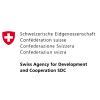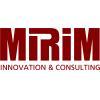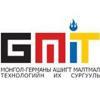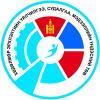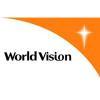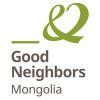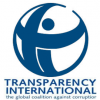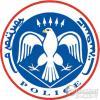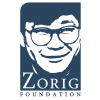.jpg)
 CALL FOR PAPERS
CALL FOR PAPERS 
Democracy in the 21st Century: Challenges and Ways Forward
An international conference sponsored by the World Society Foundation
Ulaanbaatar, Mongolia, 9-10 July 2018
DEADLINE FOR ABSTRACT SUBMISSION IS OCTOBER 31, 2017
At the 2005 World Summit, all the world’s governments reaffirmed “that democracy is a universal value, based on freely expressed will of people to determine their own political, economic, social and cultural systems and their participation in all aspects of their lives”. However, values of democracy and human rights are different in every region. In Europe and America democracy is highly valued, while in Africa and Central Asia it is least valued. Although developed countries set examples and good practices of democracy, they also show signs of back-pull, given the recent cases of the USA’s presidential elections and Great Britain’s “Brexit” proposal to leave EU.
With this call for papers the World Society Foundation (WSF) and the Independent Research Institute of Mongolia (IRIM) encourage scholars to investigate the evolution of democratic structures, the main challenges and ways forward to advance democracy in the 21st century. In order to investigate these topics, we are inviting academics to submit papers on any of the following focus areas. Presentations will promote the sharing of knowledge and information between participants:
1.Urban-Rural cleavages and democracy
- Impacts of rural-urban cleavages on democratic processes and foundation
- Political differences between rural and urban areas in Asia
- Quality of democracy and its dimensions in rural and urban areas
- Democratization and value change in rural and urban areas
- Freedom of information, human rights and gender in rural-urban settings
- Voter behavior, political parties and the electoral system
- Social cohesion in rural and urban areas and democracy
2.Civil society and democracy
- Role of civil society in democratic governance
- Role of civil society in promoting democracy and good governance
- New forms of citizen participation and democratic engagement
- Citizen participation and public confidence
- Role of civil society in democratic consolidation in Asia
- Role of civil society organizations for democracy’s leadership
- The role of social media for civil society’s political engagement and democracy
3.Extractive economics, resources-rich countries and democracy
- Governance transparency and accountability (corruption)
- How does democracy work in a resource based world economy system
- The relationships between natural resources, democracy and corruption
- Democratic governance and multinational corporations: Political regimes and inflows of foreign direct investment
The conference activities will be in English. There is no fee for registration. We welcome original work from all scholars and academics on any related to the topic of challenges and ways forward in development trends for democracy and leadership in the 21st century.
Travel grants
The WSF provides funding for up to 15 hospitality grants for authors that have submitted the most outstanding papers. The grants will cover conference travel to Ulaanbaatar and accommodation (for four nights) and will be awarded to the most outstanding papers, though with a strong affirmative action policy for submissions by scholars from Central and South-East Asia, Eastern Europe and Latin America, as well as graduate students and early career scholars.
Instructions for submission of abstracts and paper drafts
Interested applicants wishing to present original research should send their abstract to contact@irim.mn The abstract should not exceed 1000 words and it should include the title of the paper, the name of the author(s), present address (including e-mail address), the name of the institution to which the author is affiliated, as well as the issues/theories, research methods, data sources and analytical tools to be used. The World Society Foundation will give highest priority to papers that combine a general theoretical discussion with new empirical findings. The scientific advisory board members and the World Society Foundation's board members will evaluate the abstract proposals and ask successful applicants to elaborate their proposals into full papers (25-30 pages, but no more than 8000 words) in English.
Deadline for submitting abstracts and full papers
- Abstract submission: October 31, 2017
- Acceptance/rejection notification: November 15, 2017
- Submission of full papers: February 28, 2018
- Final paper acceptance/rejection notification: March 15, 2018
Local organizing committee members: Aldar DOLGION (IRIM), Chultemsuren TAMIR (National University of Mongolia) and Dashdeleg ERDENETSETSEG (IRIM).
Scientific advisory board members: Khasbazar BEKHBAT (IRIM), Yadmaa BYAMBASUREN (National Academy of Governance, Mongolia), Aldar DOLGION (IRIM), Oidov KHATANBOLD (National Academy of Sciences, Mongolia), CHRISTIAN Suter (World Society Foundation Zurich / University of Neuchâtel), and Chultemsuren TAMIR (National University of Mongolia).
Publication: The most outstanding conference contributions will be published in a forthcoming conference volume.
Conference Sponsorship: The main sponsor of the conference is the World Society Foundation (Zurich, Switzerland).
Contact: For all conference issues contact contact@irim.mn and visit our website for updates at http://www.worldsociety.ch/doku.php and http://www.irim.mn
.png)

.png)
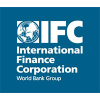
.png)
.png)
.jpg)


